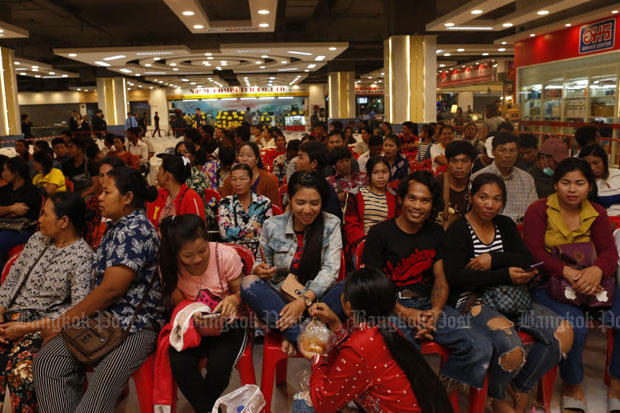
Migrant workers could be employed by shops but they could not handle cash or give change to customers, Labour Minister Adul Sangsingkeo said on Thursday.
He was elaborating on the updated lists of occupations migrant workers can and cannot do.
Vending is among the 28 occupations reserved for Thais, the minister explained. The lists were updated by an executive decree.
"Vending in shops is absolutely banned. Migrants can work there as employees but their employers must be present. They cannot own or run a shop. As employees, they cannot handle or keep money by themselves. They can only pass money between employers and customers," Pol Gen Adul said.
In shops, migrant workers could be used to stack shelves and handle goods for customers, for example, the minister said.
Of the 28 reserved occupations, 16 are related to Thai wisdom and characteristics such as the production of handicrafts.
The professions are: wood carving, hand-weaving, mat-weaving; production of handmade paper, lacquerware, nielloware, Thai musical instruments, Thai dolls, gold-silver-copper alloy products, bronze ware, alms bowls, hand-woven silk, paper or cloth umbrellas, and Buddha images, typesetting with Thai characters, and silk reeling and twisting by hand.
The other 12 reserved jobs are driving vehicles on local routes, selling at shops, auctions, gem polishing and cutting, hairdressing, local brokerage, cigarette hand-rolling, tour guide services, street vending, secretarial jobs, legal services, and Thai massage.
The Labour Ministry also listed 12 jobs migrant workers are allowed to take. Labour is permitted by migrants whose home countries have memorandums of understanding with Thailand.
The 11 other jobs are as employees only. They are agriculture, construction work, the production of mattresses or quilts, knives, shoes, hats, clothes and earthenware, engineering work, architectural services, and accounting.
The updated lists of occupations would take effect next month. Labour authorities would publicise them during the first month of implementation and would take strict legal action afterwards, the labour minister said.